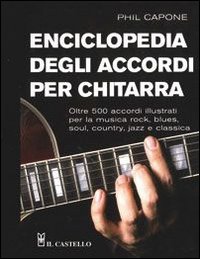Crack Per Encyclopedia Didattica Della Chitarra Indiana
Enciclopedia didattica della chitarra recensione, enciclopedia didattica della chitarra.mike watkinson.trascrizione per chitarra di dario bisso, milano, curci. Mid season sale 55 off now 99.acquista il libro enciclopedia degli accordi per chitarra di phil. Vectric Aspire 8 Crack + Keygen Free Download With Serial Key Vectric Aspire 8 is simple and easy to use. Starters can easily change the style. New: Support for xPRO V3 Controller Stepper Driver: Estlcam now supports the Spark-Concepts xPRO V3 controller. Crack Per Encyclopedia Didattica Della Chitarra Acustica.
Abstract & KeywordsEnglish:Defining disability is not an easy task due to its multidimensionality. This paper begins with a revision of some of the most common models to define disability. The second part of the article examines end user profiling in articles, European funded projects and PhD thesis’ related to one of the media accessibility modalities: audio description.

The objective is to understand the approach taken by researchers. The final part of the article will propose a new approach in the study of end users in experimental research in Translation Studies, Audiovisual Translation, and Media Accessibility. This new approach gives a response to the International Telecommunication Union’s suggestion of leaving the biomedical approaches behind.
Crack Per Encyclopedia Didattica Della Chitarra Indiana Free
Our suggestion is based on Amartya Sen’s capabilities approach, which has not yet been applied to user profiling in media accessibility studies. The article finishes by illustrating how this approach can be applied when profiling users in media accessibility questionnaires.Keywords: media accessibility, capabilities, models of disability, audio description. Abstract & KeywordsEnglish:Marxist discourse and its leading propagandist in Iran, the Tudeh (Mass) Party, played such a leading role in the Pre-Revolutionary Iran that any account of the reception of other discourses in that period should include an analysis of its relation to it. Existentialism was the most important rival intellectual movement for Marxist discourse in Pre-Revolutionary Iran, both challenging Marxist discourse and being overwhelmed by it. However, the conflict between these two discourses, especially in the early stages of Existentialism’s reception, has never been fully investigated. The present paper aims to investigate, through related translations and indigenous writings, the early reception of existentialist discourse in Iran from 1941 to 1953 (from the fall of Reza Shah to the 1953 Coup), a period which coincides with the establishment of the Tudeh party, the zenith of its power and prestige and then its drastic repression.
To this end, the article offers an account of the socio-political context of Iran from the 1940s (the beginning of the introduction of Existentialism in Iran) to the early 1950s with a focus on the role of the Tudeh party. An overview of the Persian translations of Sartre’s books and indigenous material on Existentialism in this period and translators’ and other agents’ profiles shows that Sartrean Existentialism, imported with different and sometimes contradictory purposes, was received mainly as an individualistic, nihilistic and pessimistic philosophy which posed a threat to the then dominant Marxist- Leninist ideology.Keywords: Sartrean Existentialism, marxist discourse, Tudeh party, Iran, history. IntroductionKnowledge, discourses and theories are produced in different ways: whether they are constructed within the borders of a culture, or imported from a different culture through the channel of translation or other forms of rewriting (e.g. Original writing on the imported discourse).

When discourses are imported, the process is generally thought to be easy and unobstructed. However, as Edward Said (1983: 226) states, the transfer of knowledge and theory to the new environment is by no means easy and discourses undergo many transformations during the process. Said observes a recognizable and universal pattern in the transfer of theories and claims that each idea or theory goes through three or four stages in the process of its importation. First of all, there is a starting point, or what seems to be a starting point, a set of initial conditions in which an idea is born or enters into a discourse.

The second stage is the distance which the theory or idea travels to find a new significance in its new environment. El urbanismo ecologico pdf download. In the third stage, there are sets of conditions that are called reception or resistance conditions encountered by the immigrant idea or theory.
In the fourth stage, an idea that is now completely or incompletely assimilated undergoes many transformations and finds new applications (Said, 1983: 226-227). Said’s report on the migration of theories, however, is taken to task by Susam-Sarajeva (2006) on account of the fact that it totally ignores the role played by the translations and translators, as if theory could be transferred without being translated.Venuti (2006: 106) also refers to the neglect of translation in philosophical research and states:philosophy does not escape the embarrassment that faces contemporary academic disciplines when confronted with the problem of translation.